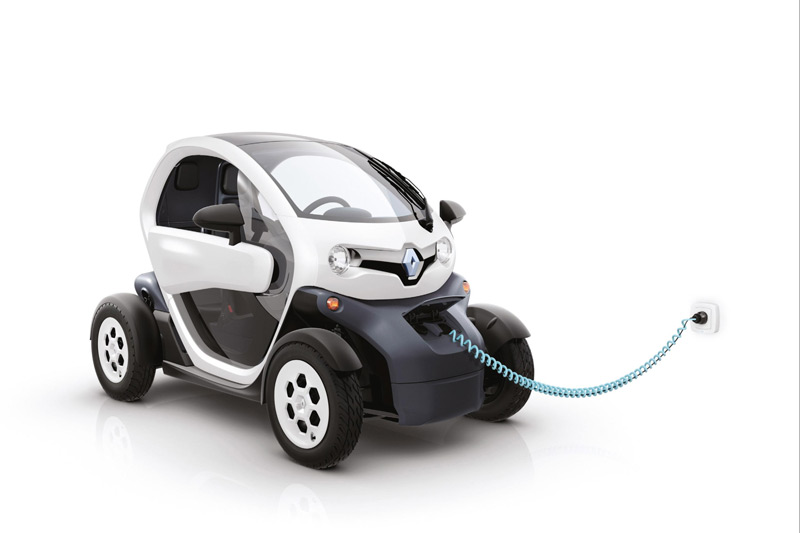Early electric cars were popular because they were quiet, clean and easy to operate. But they were also expensive, slow and heavy, and as the internal combustion engine became more powerful, reliable and cheap to produce, electric vehicles very quickly faded away, becoming an obscure footnote in the history of the motor car.
So what has changed? Why are electric cars relevant now, when they have been largely ignored for the past century? Are they simply a political tool to appease climate change activists, or are they a practical form of transport that can be justified on their own grounds?
The changing face of transport
There are lots of reasons why electric cars are relevant today. Inner city pollution, the cost of fuel and traffic congestion all play their part, but probably most importantly of all, there is a subtle shift in perception of the role of the car in society today.
Owning and running a car used to be relatively cheap. Wind the clock back twenty years and fuel was cheap, car insurance was cheap and, even if you were a young driver with a modest amount of money to spend, you could afford to own and run a car.
Today that is no longer the case. Cars are expensive to buy and run. Students ride bikes or take public transport. Many people on low incomes simply cannot afford to run a car. Many car owners have downsized their cars; instead of buying family cars with big, thirsty engines, they buy smaller, more economical models.
Means of personal transportation such as bicycles, electric bikes, scooters and mobility vehicles have all seen huge sales increases over the last few years. Motor manufacturers are experimenting with new types of vehicles, such as the Renault Twizy, a small lightweight vehicle that is somewhere between a motorcycle and a car. It all points to the possibility that the car of tomorrow could be a very different vehicle to the car of today:
Peak oil
‘Peak oil’ is the point in time when the maximum rate of petroleum extraction is reached, after which the rate of production enters a terminal decline. It was originally identified in 1956 by M. King Hubbert, a geo-scientist working at the Shell Research Laboratory in Houston, Texas.
M. King Hubbert calculated that peak oil in the United States would be reached in 1965 and that worldwide peak oil would be reached in 1995 “if current trends continue”. Originally ridiculed for his research, he became famous in the mid-1970s, when his predictions about US peak oil were proved correct.
According to the Oil and Gas Journal reports from February 2014, thirty-seven countries are now past peak oil, including virtually all major oil producers other than Canada and the United States. Meanwhile, worldwide demand for oil continues to rise, and is rising faster than production. Evidence suggests that demand is again stretching the oil industry’s ability to supply, despite shale oil and more advanced oil extraction techniques.
Traditionally, the industry regulates demand to match their supply by increasing their prices. Since January 2012, the overall price trend is increasing. As of June 2014, crude oil traded at $102.44, up from $82.25 a barrel in January 2012.
Evidence therefore suggests that, despite increased oil production, demand is still outstripping supply and is only being kept in check by significant increases in price. When worldwide peak oil is reached in the next few years, the high demand, combined with falling supply, will rapidly see prices rising to significantly higher levels.
All this makes finding an alternative fuel for transport both more important and more viable. With crude oil prices increasing so significantly, the cost of buying and running an electric car become more appealing. In Europe, we have already reached the point where the entire purchase and running costs for their electric car are, for many people, comparable to the cost of paying for fuel in a conventional car. As fuel prices continue to rise, more and more people will find themselves financially far better off running an electric car.
Pollution
Whilst carbon emissions from road transport have fallen dramatically over the past twenty years, inner city pollution remains high in many cities across the world. And whilst carbon levels have dropped, the switch from petrol to diesel for many cars, particularly in Europe and parts of Asia, has significantly increased nitrous and particulate matter pollution, including many substances that are harmful to human health and are estimated to cause around 28,000 premature deaths per year in the United Kingdom alone (see page 118 for more information on diesel pollution).
Electric cars move the pollution out of the cities and towards the power stations creating the power. The way your electricity is produced will determine how much less pollution an electric car is responsible for compared to a conventional car, but the fact that fewer pollutants are being emitted inside the city is a significant step forward in public health.
[box type=”info”] Extracted from The Electric Car Guide 2015 by bestselling author and industry expert Michael Boxwell.[/box]



